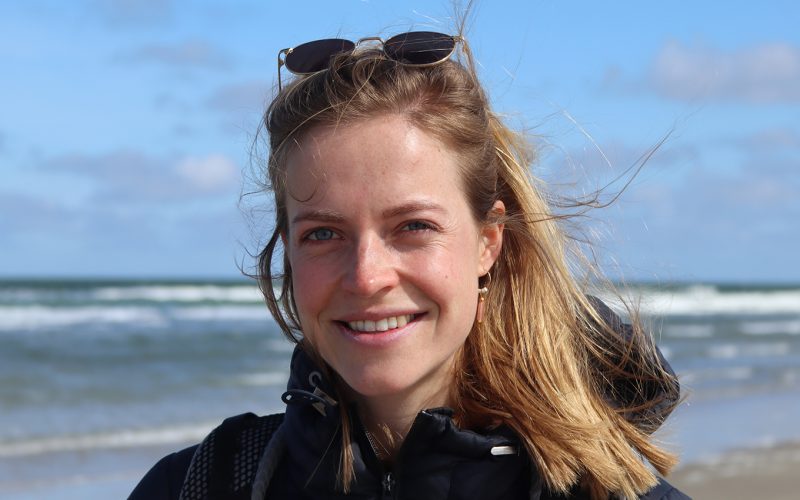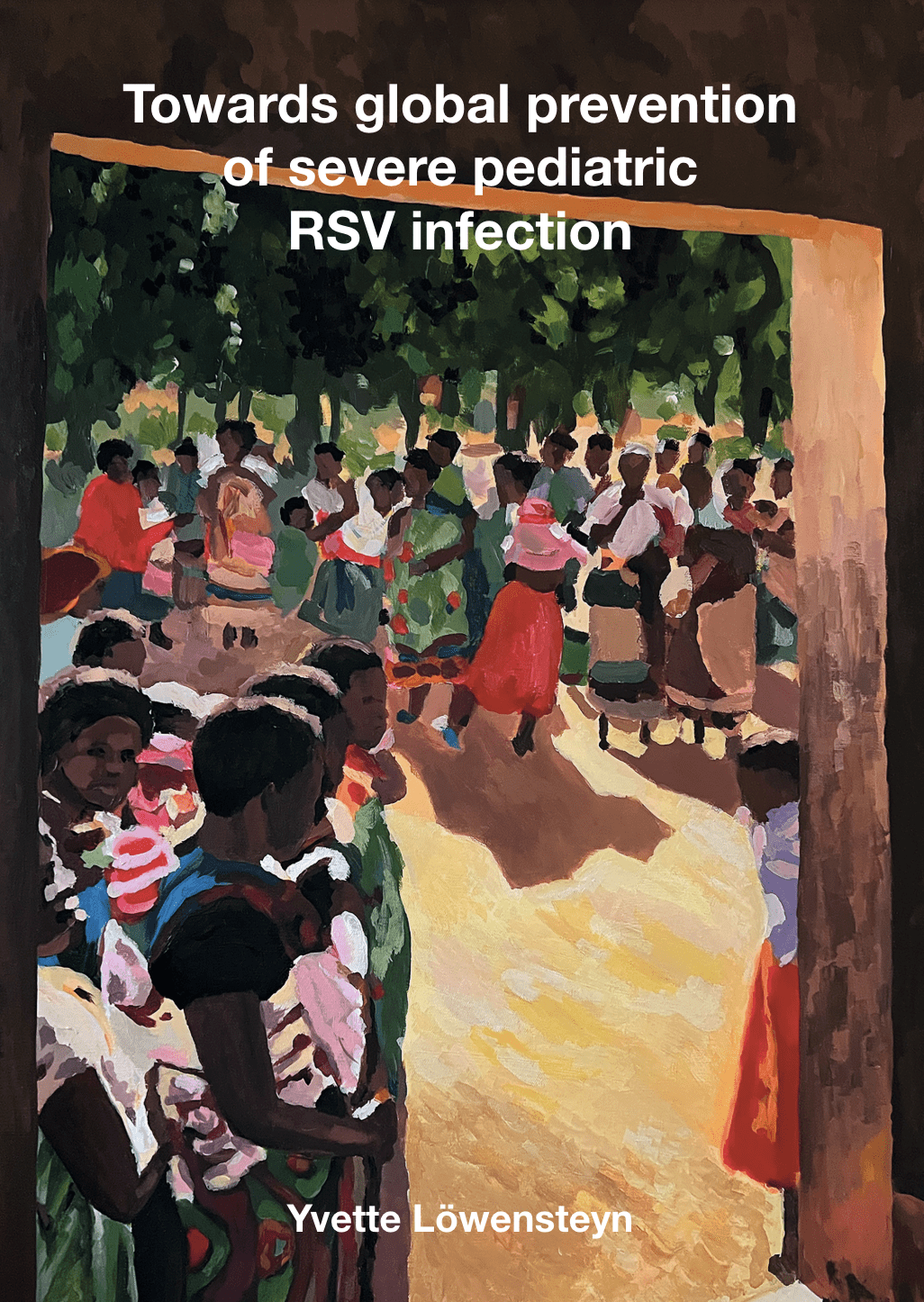The recent introduction of a new antibody and a maternal vaccine against RSV is expected to decrease the number of severe pediatric RSV infections. However, these products are only available in high-income countries and not in low and lower-middle income countries, where RSV-associated mortality is highest. The main take-away of the PhD research of Yvette Löwensteyn MD (UMC Utrecht) therefore is that public health leaders should ensure that regulatory approval and availability of these products are prioritized according to the burden of disease, to contribute to more equitable RSV prevention.
Respiratory syncytial virus (RSV) is the major cause of lower respiratory tract infections in young children. Globally, RSV infection presents a significant health problem and burden to the healthcare system with nearly 2 percent (1 in 56) of all healthy term infants are admitted to hospital with RSV infection. In addition, RSV infection is responsible for >100,000 deaths each year among children <5 years of age. The majority of these deaths occur in low- and lower-middle-income countries (LMICs) due to the lack of high-quality healthcare. This unequal distribution of RSV mortality calls for equitable distribution of RSV vaccines and drugs, prioritizing regions with the highest disease burden. Unfortunately, so far there are no RSV vaccines available in LMICs. An important aim of the PhD thesis of Yvette Löwensteyn MD (Department of Pediatric Immunology and Infectious Diseases, UMC Utrecht) was to enhance public understanding of RSV mortality in LMICs to support equitable RSV vaccine distribution.
To increase the visibility of RSV mortality, Yvette Löwensteyn and colleagues described RSV mortality characteristics with help of data from the global RSV GOLD database (a global registry of children <5 years with who died with RSV-related illness) in several subgroups such as children with Down syndrome, children who died outside the hospital, and children who acquired an RSV infection in the hospital. Moreover, a 2-year prospective observational study (RSV GOLD-ICU) among children admitted to pediatric intensive care units across 10 LMICs revealed an infection with the RS virus in nearly one-third (614 out of 2118) of all children admitted to the hospital with a life-threatening respiratory infection. Among the 30 out of 608 children (5 percent) who died from an RSV infection, only 16 (53 percent) were provided mechanical ventilation, probably because such advanced medical resources were not available or accessible at the hospital.
Yvette Löwensteyn concludes from these data that RSV is an important cause of death in young children in LMICs and that therefore urgent action is needed: “The good news is that recently the long-acting antibody nirsevimab as well as a maternal RSV vaccine have become available to prevent severe RSV infection in young children. Unfortunately, these products are not available in the countries where they would have the largest impact, since 97 percent of RSV mortality in young children occurs in LMICs. Therefore, global public health leaders – including governments, donors and non-governmental organizations – should ensure that approval and distribution of these products are prioritized according to burden of disease.”
According to Yvette Löwensteyn, access to RSV vaccines for LMICs can be enhanced even more by drug development reform: “Currently, there is a persistent mismatch between vaccine development in relation to global disease burden. By prioritizing impact over profit, vaccine development can be better aligned with mortality burden. Furthermore, I would like to make a strong plea for equitable future vaccine research through co-creation, equitable partnership and authorship policies, and sustainable strengthening of production capacity in LMIC’s.”
Yvette Löwensteyn MD (1992, Wijk bij Duurstede) defended her PhD thesis on September 5, 2024 at Utrecht University. The title of her thesis was “Towards global prevention of severe pediatric RSV infection”. Supervisor was prof. Louis Bont MD PhD and co-supervisor was Nathalie Mazur MD PhD (both Department of Pediatric Immunology and Infectious Diseases, UMC Utrecht). Yvette has recently started her residency in pediatrics at the Wilhelmina Children’s Hospital (part of UMC Utrecht).

